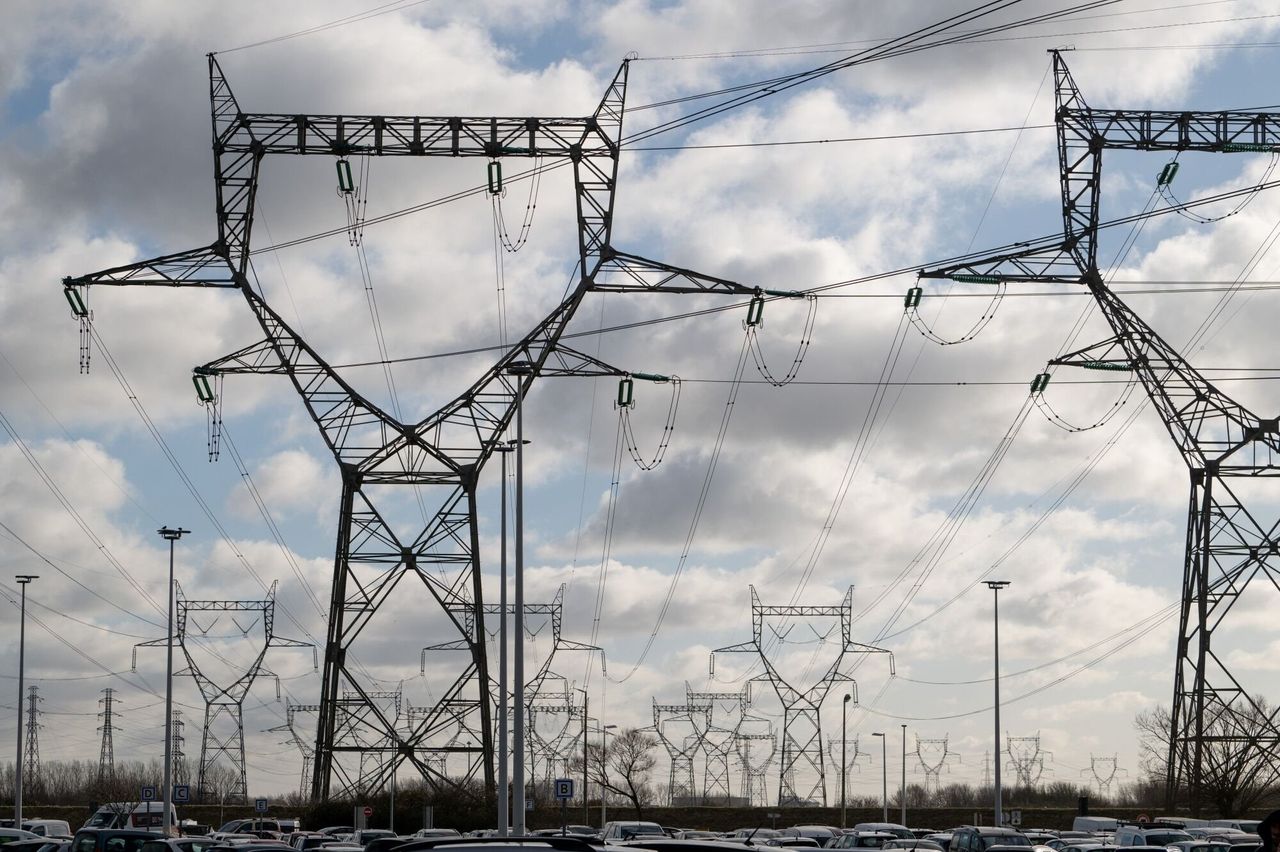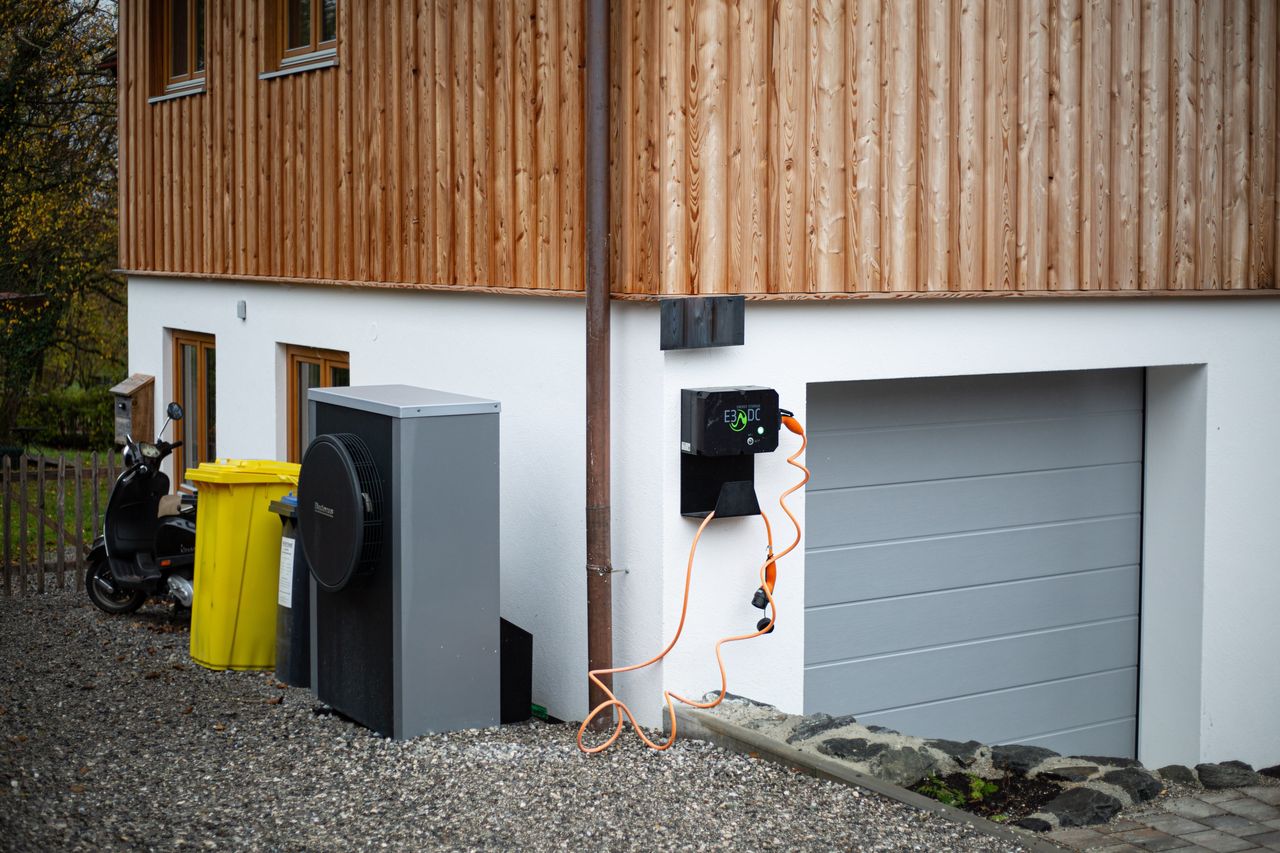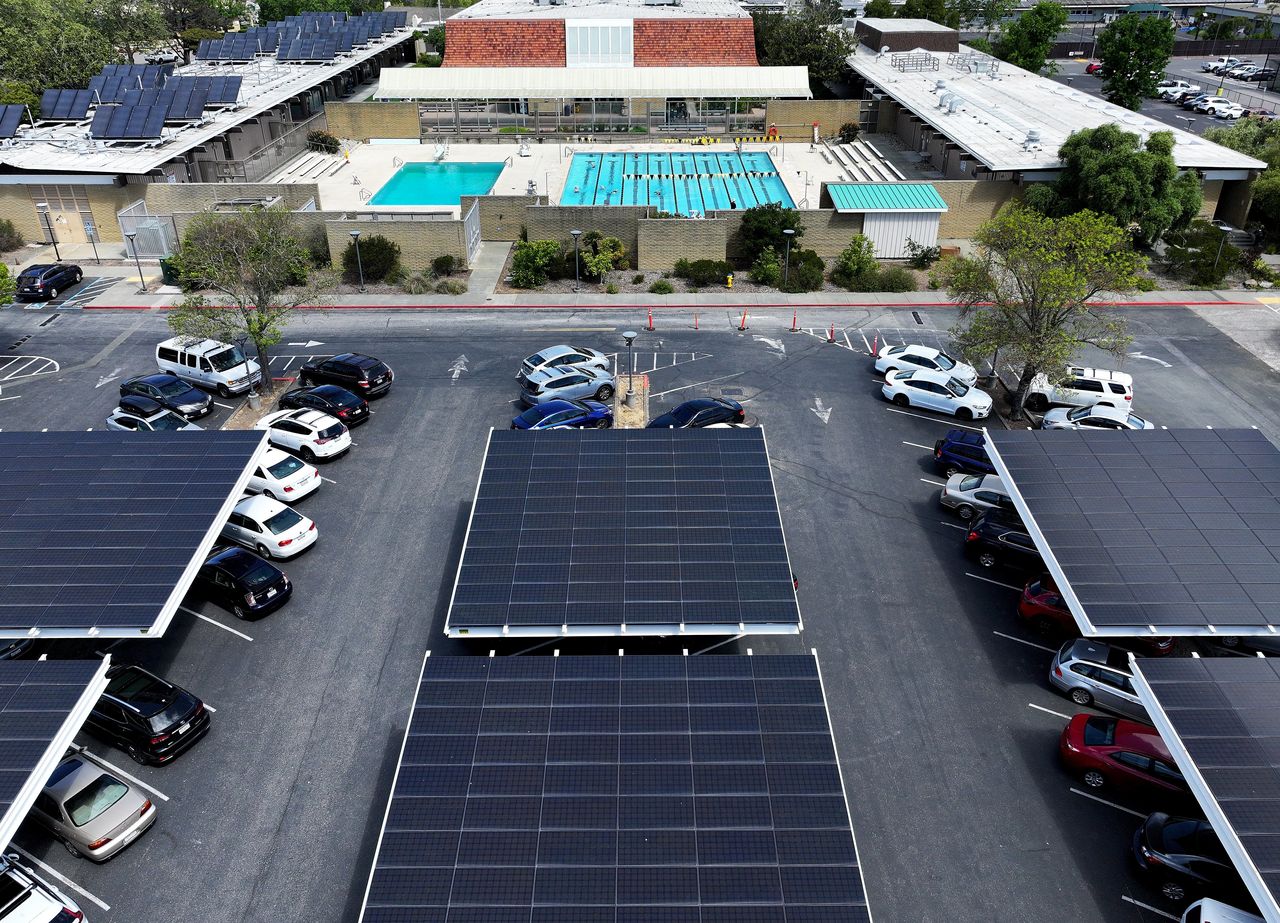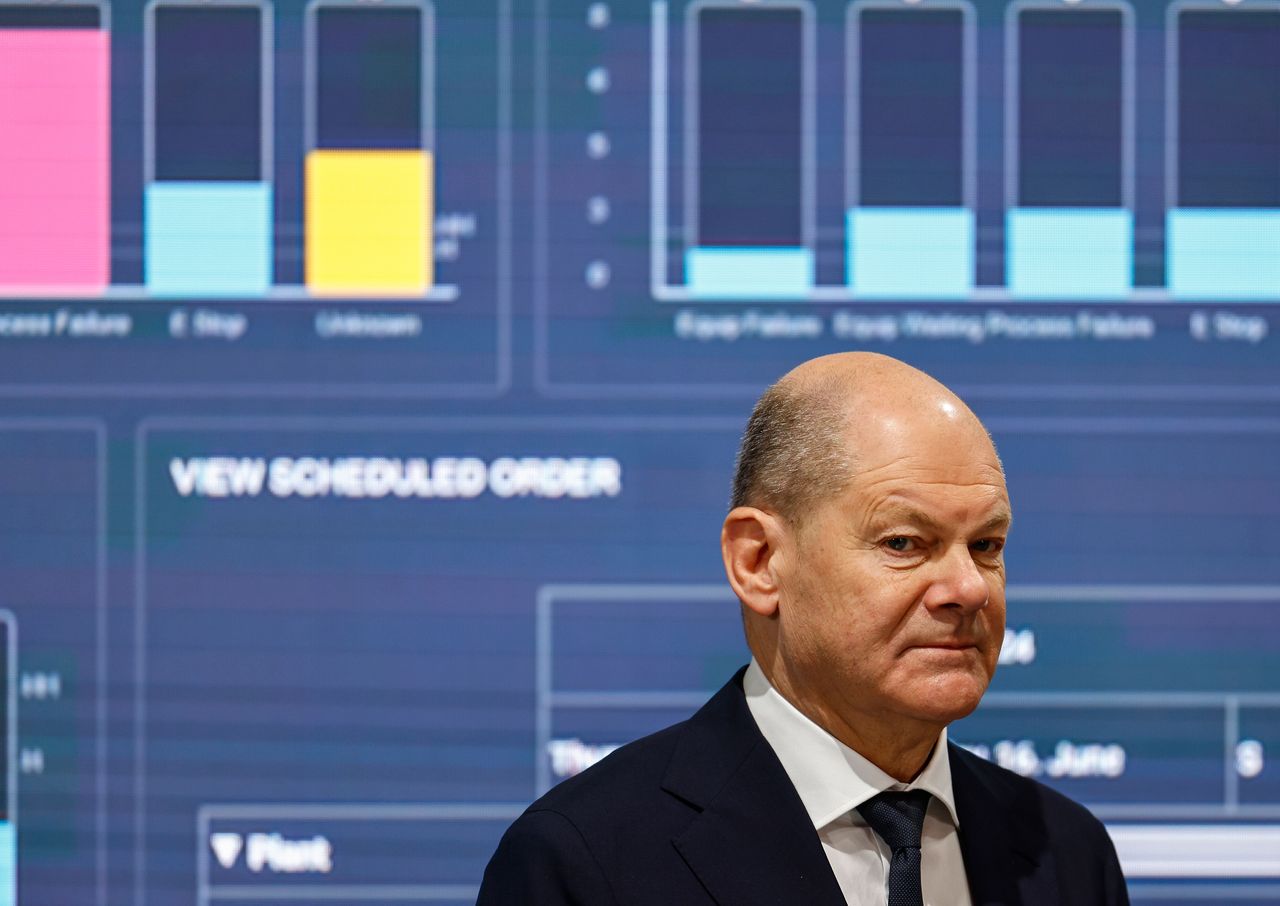Households Wince at the Rising Price of Going Green

When postal manager José Belloso put his Paris apartment up for sale this year he was required to have an inspector grade the home for energy efficiency under strict rules designed to fight climate change.
Belloso’s building was built in the early 1900s from millstone, a porous sedimentary rock that was popular among architects of France’s Belle Époque. His apartment flunked the inspection—and under a regulation that came into force this year, the property was barred from the rental market until costly renovations are made.
Belloso was ultimately forced to knock 50,000 euros, equivalent to $54,000, off his asking price to find a buyer.
Consumers are starting to pay for the energy transition, and they aren’t happy about it.
Governments that were among the earliest in the world to adopt climate legislation tried to take the sting out of the transition by motivating consumers with subsidies. Now, however, the same capitals are cash-strapped and many are passing the bill to the consumer. Subsidies are being scaled back, taxes tied to carbon emissions are being phased in, and rules requiring expensive renovations are starting to bite.

Many consumers, including those who broadly support the energy transition, are unwilling to pay up. Farmers have laid siege to Paris and other European capitals over plans to remove diesel-fuel subsidies. German households have rebelled against requirements to replace polluting gas boilers. In California, homeowners and small businesses seeking to install solar panels are running up against new metering rules that cut by roughly three-quarters the amount of money they can get for selling electricity back into the grid.
Governments lined up a slew of climate measures years ago when interest rates were low and energy supplies seemed abundant. Now those changes are coming into force, and governments are facing a new calculus. Wars in Ukraine and Gaza are forcing Western governments to spend more on defense while grappling with higher energy costs and inflation.
The challenge lies in designing climate policy with geopolitical shock absorbers. French President Emmanuel Macron has suggested Europe might require a “regulatory pause” so its economy can absorb the impact of the Ukraine war, and the European Union has recently trimmed some of its climate measures.
Delaying the energy transition by as little as five years, however, could lead to an increase in the average global temperature of three degrees Celsius above preindustrial levels, according to energy research firm Wood Mackenzie. That exceeds the landmark Paris accord’s threshold of 1.5 degrees.
For now, energy-transition fatigue is setting in. Three-quarters of energy consumers say they have already done as much as they can to be sustainable, according to a survey of 100,000 people over 20 countries by the research arm of accounting firm Ernst & Young.

The energy transition is falling “on the shoulders of the low- and mid-income-level people in a disproportionate way,” said Fatih Birol, chief of the Paris-based International Energy Agency, which is tasked with keeping governments on track to meet their climate targets. “The worst thing for the energy transition is that it is perceived as being done by and for the elites.”
Households are getting hit with the ballooning costs of building or upgrading electrical grids and other critical infrastructure to support the energy transition. Electric rates under California utility PG&E have increased 127% in the past decade along with surging costs for wildfire prevention and grid upgrades. Nearly a quarter of the utility’s customers are now delinquent on their bills.
California, which aims to run on 100% clean energy by 2045, generates much more solar power than its electrical grid can handle during the day. The change to metering rules is an attempt to spread the cost of grid development and push homeowners to install batteries to store excess power. New rooftop solar installations in the state have plummeted 75% as a result, and an estimated 17,000 workers at companies that put panels on rooftops have been laid off. A state law that makes higher-income people pay more for their electricity has split the clean-energy community.

Mark McKean, a third-generation farmer in central California, has installed solar panels since 2017 to power irrigation pumps for his fields and orchards and lower his electricity bills. The metering changes meant he would have to sell all the solar electricity he generates to PG&E at low prices and buy what he uses back at high rates. Adding more panels, he said, “doesn’t make financial sense any more.”
In Illinois, which aims for 50% renewable energy by 2030, the power regulator in December rejected grid-improvement plans from two utilities, saying the state’s households shouldn’t be “unfairly asked to shoulder undue costs tied to the state’s energy transition.” Calvin Butler, the chief executive of one of those utilities, Exelon, protested in a Bloomberg interview that cleaning the grid “is going to cost money.”
Europe has in many ways embodied the ethos of a transition free of sacrifice. Underpinning that idea was the flow of relatively cheap Russian natural gas, which the continent planned to gradually wean itself off as it moved to cleaner sources of energy. Billions in subsidies that the European Union mobilized to fight the Covid pandemic could also be rerouted to green Europe’s economy.
That belief was punctured when Russia invaded Ukraine in early 2022, sending energy prices rocketing, fueling inflation and driving up costs for companies. Germany, the continent’s economic powerhouse, began to sputter as its energy-hungry manufacturers confronted soaring electricity and gas bills.
Then Germany’s constitutional court ruled that Berlin couldn’t tap unused funds left in pandemic-era special-purpose vehicles to fund the transition, forcing the government to cut spending by about €60 billion.
Scores of incentives designed to encourage lower carbon emissions were suddenly doomed. In a hastily revised budget unveiled last December, the government sought to salvage its emission targets by switching from encouragement to coercion.
Berlin said it would raise carbon prices—making heating costs and gas at the pump more expensive—and introduce an aviation fuel tax for domestic flights and a tax on plastics. It also decided to end subsidies for grid fees and scrapped a subsidy for buyers of electric vehicles. A tax rebate on diesel fuel used in agriculture—and deemed harmful to the climate—was cut. So were incentives to build solar panels and renovate outdated heating systems.
“We will have to use significantly less money to meet our goals,” Chancellor Olaf Scholz said as he announced the cuts.

In late 2021, Zoran Rakic ordered a €15,000 natural-gas heater, paying an additional €3,000 to connect the system to the main gas line in the West German town of Karlsruhe. Then Russia invaded Ukraine, and Rakic canceled his order in a state of panic over rising gas prices.
He instead decided to buy a €50,000 electric heat pump with the help of a subsidy that covered half of the expense. When Germany’s constitutional court ruled against the government’s climate spending plans weeks later, Rakic and his wife feared they would lose their €25,000 subsidy.
They didn’t. But Rakic and his wife were sent on an emotional roller coaster that put their marriage to the test. Rakic managed to keep his electricity consumption as low as possible by setting the thermostat to 68 degrees Fahrenheit and funneling the meager winter output of his solar panels into the pump. Whatever happens, he said, the couple will never recoup the extra money they invested in the pump.
“These were tough months for the family,” he said.

France passed climate legislation in 2021 that, as of this year, began barring homes from the rental market if they scored low on energy-efficiency inspections.
Belloso’s apartment wasn’t drafty, so he was surprised when the inspector deemed it a “thermal colander,” an official designation for apartments that don’t retain enough heat. He was docked for having an outdated heating system and windows. What really did him in, however, were the millstone walls.
The only way to insulate his apartment without affecting the building’s historic exterior was to add layers of thick insulation to the interior walls. Belloso, 61 years old, estimated the total renovation would cost him €25,000. Plus, the need for thickened walls would end up cutting into the square-footage of his apartment, further affecting its value. Rather than oversee the renovations himself, he decided to sell the apartment at the reduced price of €220,000.
If the government thought the new rules would spur homeowners to invest, the plan has backfired, Belloso said, adding: “They raised the bar too high, all at once. And voilà! You plunge everyone into forced sales.”
—Muriel Zvellenreuther contributed to this article.
Write to Stacy Meichtry at [email protected] and Phred Dvorak at [email protected]
